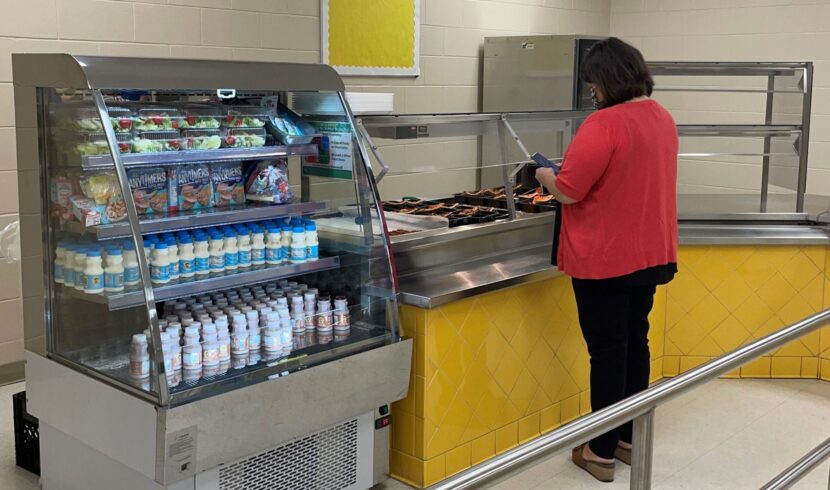By MARY SELL and MOLLEE BRELAND, Alabama Daily News
AUBURN, Ala. – Federal waivers that have allowed schools to be more flexible in their delivery of meals, provide them for free to all students and respond to supply chain problems are ending this month.
Several school systems around the state have advocated for an extension of the U.S. Department of Agriculture waivers that first went into effect in March 2020, but Congressional action seems unlikely now. School leaders are reminding low-income families they need to apply for reduced priced or free meals for the upcoming school year — something they haven’t had to do the past two school years.
“Applications must be on hand by Aug. 1,” said Julie Bone, child nutrition program director for Morgan County Schools. “Once they don’t sign it, they won’t receive free lunch.”
To qualify for reduced-price meals, a family of four must earn less than $51,338. For free meals, a family of four must earn less than $36,075.
Bone is one of many who has asked for an extension of the waivers.
“As economic factors rise, a family’s last concern should be their child getting a basic meal at school,” she said.
In February, hundreds of advocacy organizations and local schools around the country, including about 40 from Alabama, signed a letter asking Congress to extend the waivers.
“Without these waivers, the child nutrition programs would not have been able to adequately respond to the fallout from COVID-19. Throughout the pandemic schools and community meal sponsors have relied on these waivers to keep children fed during short- and long-term closures, alleviate child hunger, and advance racial equity and child well-being.
The June 30th expiration also takes away the USDA’s ability to respond to the supply chain, operational and access challenges that are likely despite what will hopefully be the first year back to normal school operations,” the letter said. “Moreover, it denies schools and other sponsors the tools and flexibilities they need to recover from the impacts of the pandemic and resume normal operations.”
The supply chain disruption has improved, but there are still items that are either hard to get or have been discontinued altogether due to the market, said Angelice Lowe, State Director Child Nutrition Programs
“Many distributors are still struggling with labor shortages,” Lowe said.
Elaine Vaughn, child nutrition program director at Russellville City Schools, is spending her summer buying all she can.
The system has a “Provision 2” status based on students’ socio-economic factors and will be able to feed all students in the upcoming school year. Getting that food is Vaughn’s concern and why the waiver — which reimbursed schools at a higher rate — was important. Schools are paying more for food and paper supplies and when the waiver ends, they’ll be reimbursed less.
“I’m stocking up on everything I can … I have to because I don’t know if I’m going to be able to get it when school starts,” Vaughn said. Meanwhile, schools are struggling to staff their cafeterias.
“Our costs are astronomical right now,” Vaughn said.

